Ribs Rumble: St. Louis Style vs Baby Back – Which One Wins the BBQ Crown?
Hey there, fellow spice enthusiasts and pitmasters-in-the-making! Ever stood at the butcher counter scratching your head between two of America’s favorite rib cuts? Fear not—we’re diving deep into the deliciously smoky world of St. Louis style ribs vs baby back ribs. Whether you're a pro smoker or a weekend warrior with a Weber kettle, this guide will arm you with all the saucy secrets and savory strategies to make your next barbecue a true meaty masterpiece.
So grab your tongs, fire up the smoker, and let’s get this rib battle started!
Table of Contents
- What Are St. Louis Style Ribs?
- What Are Baby Back Ribs?
- Head-to-Head: The Meaty Matchup
- Cooking Methods & Pro Tips
- Spice Blends That Make Them Sing
- Final Verdict: Who Wins the Rib Throne?
What Are St. Louis Style Ribs?
If ribs had a linebacker, it’d be the St. Louis cut. These bad boys come from the belly side of the hog—also known as the spare ribs—but are trimmed into a neat rectangular slab by removing the brisket bone and cartilage. Think of them as the more muscular, bulked-up cousin who skipped leg day but hit the gym for chest and arms daily.
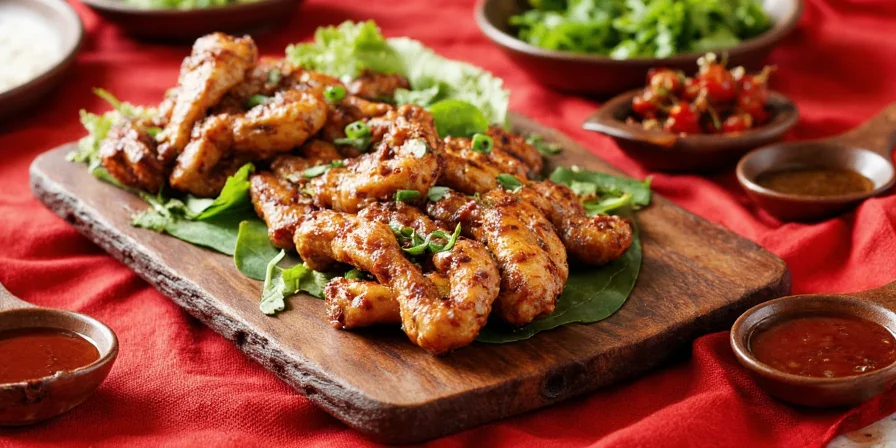
Pros:
- Meatier and fattier than baby backs
- Affordable (relatively)
- Great for slow smoking
Cons:
- More chewy texture due to connective tissue
- May require trimming if too fatty
What Are Baby Back Ribs?
Baby backs are the prima donnas of the pork world. Cut from the top of the rib cage, right under the loin, they’re smaller, leaner, and usually more tender than their brawny cousins. They’re like that elegant friend who always looks good, even in sweatpants—graceful, clean-cut, and just a little bit fancy.
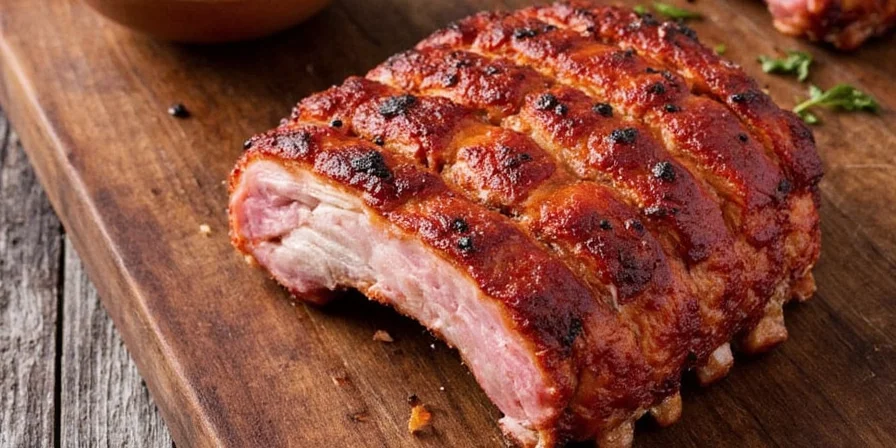
Pros:
- Tender and lean
- Pretty presentation
- Cook faster than St. Louis
Cons:
- Higher price tag
- Less marbling = less flavor for some palates
Head-to-Head: The Meaty Matchup
Let’s line these two up and see how they stack up. Here’s a quick comparison chart to help you decide which rib deserves your charcoal throne:
| Feature | St. Louis Style Ribs | Baby Back Ribs |
|---|---|---|
| Location | Lower part of the ribcage (belly side) | Top of the ribcage (under the loin) |
| Size | Larger, flatter slabs | Smaller, curved racks |
| Fat Content | Higher fat and marbling | Leaner, less marbling |
| Cook Time | Longer cooking time (~5–6 hours) | Shorter cooking time (~4–5 hours) |
| Price | More affordable | More expensive |
| Texture | Chewier, more robust bite | Tender, delicate bite |
| Flavor | Rich, smoky, bold | Mild, subtle, refined |
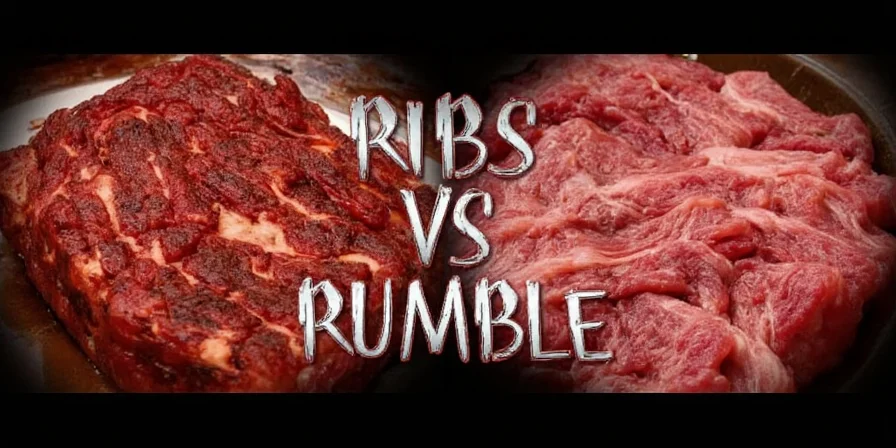
Cooking Methods & Pro Tips
Whether you’re a low-and-slow fanatic or prefer the speed of a pressure cooker, here’s how to cook each rib type to perfection.
For St. Louis Style Ribs:
- Low and Slow Smoking: Ideal for breaking down fat and collagen. Use oak, hickory, or pecan wood for that deep, smoky punch.
- The 3-2-1 Method: Smoke for 3 hours, wrap in foil with a splash of apple juice for 2 hours, then finish unwrapped for 1 hour with sauce.
- Trim Fat: While they’re fatty, too much can overwhelm. Trim excess before seasoning.
For Baby Back Ribs:
- Direct Heat Grilling: Works well if you’re short on time. Keep temps around 225°F for best results.
- BBQ Sauce Lover’s Dream: Leaner meat means they need more sauce love during the last 30 minutes of cook time.
- No Foil Needed: Thanks to their leanness, baby backs don’t need wrapping unless you’re chasing extreme tenderness.
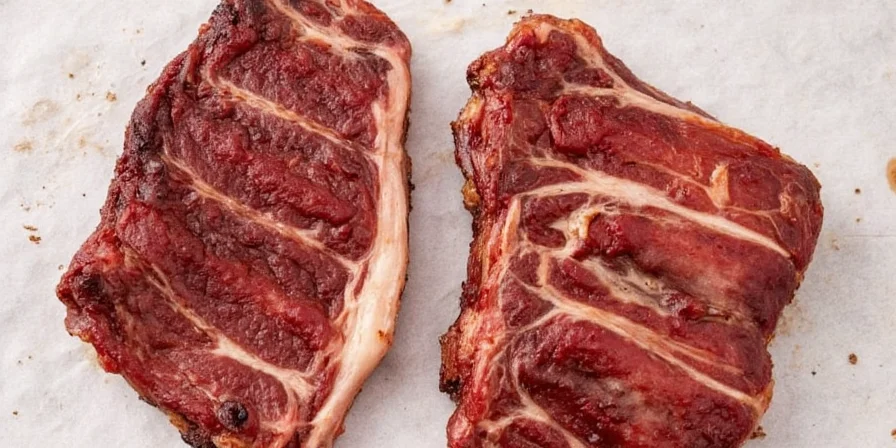
Spice Blends That Make Them Sing
No matter which rib you choose, the right rub is like putting a tuxedo on a pig—it makes everything look better. Here are some killer combinations to try:
Classic Southern Rub (Great for St. Louis):
- 1/4 cup brown sugar
- 2 tbsp paprika
- 1 tbsp chili powder
- 1 tsp garlic powder
- 1 tsp onion powder
- 1 tsp black pepper
- 1 tsp mustard powder
- 1 tsp salt
This sweet and smoky combo plays well with the richness of St. Louis ribs.
Garlic-Herb Blend (Perfect for Baby Backs):
- 2 tbsp garlic powder
- 1 tbsp dried thyme
- 1 tbsp dried rosemary
- 1 tsp lemon zest (optional)
- 1 tsp salt
- 1 tsp black pepper
- 1 tsp cayenne (for heat lovers)
Lighter and herb-forward, this blend enhances the delicate flavor of baby backs without overpowering.

Final Verdict: Who Wins the Rib Throne?
In the ultimate rib-off, there’s no one-size-fits-all champion. It really depends on what you’re craving and who’s eating:
You Should Go With St. Louis If:
- You love rich, fatty, melt-in-your-mouth goodness
- You're cooking for a crowd and want something hearty
- You’ve got time to smoke and savor
You Should Pick Baby Backs If:
- You’re feeding guests who appreciate finesse over force
- You want quicker results without compromising flavor
- You plan on slathering on sauce and making it Instagram-ready

Pro Tip:
Why choose just one? Many pitmasters serve both types at gatherings so everyone gets their rib fix. Just remember to label them clearly—unless you want a heated debate over dinner rolls and coleslaw!
Summary
To recap our rib-tastic journey:
- St. Louis ribs are meaty, flavorful, and budget-friendly but take longer to cook and have a chewier bite.
- Baby back ribs are tender, elegant, and cook faster but cost more and can be drier without proper care.
- Choose based on your event, appetite, and available time.
- Don’t forget the rubs and sauces—they make all the difference!
Now go forth, fire up the grill, and may your ribs be forever juicy, your bark crispy, and your napkins plentiful!
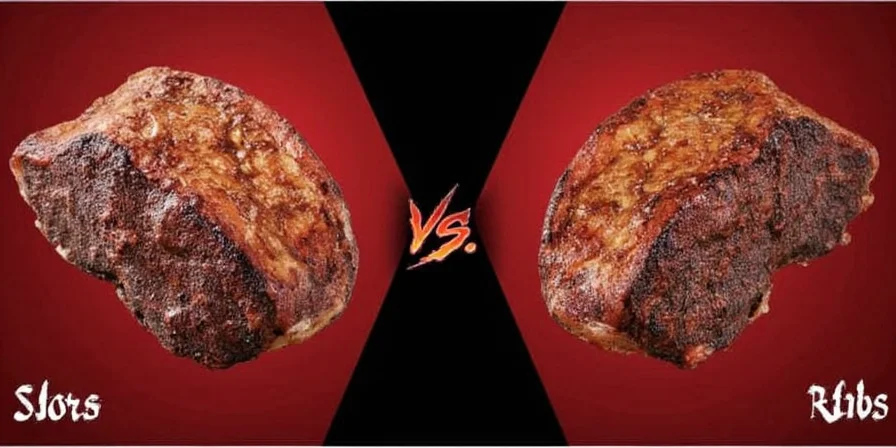











 浙公网安备
33010002000092号
浙公网安备
33010002000092号 浙B2-20120091-4
浙B2-20120091-4